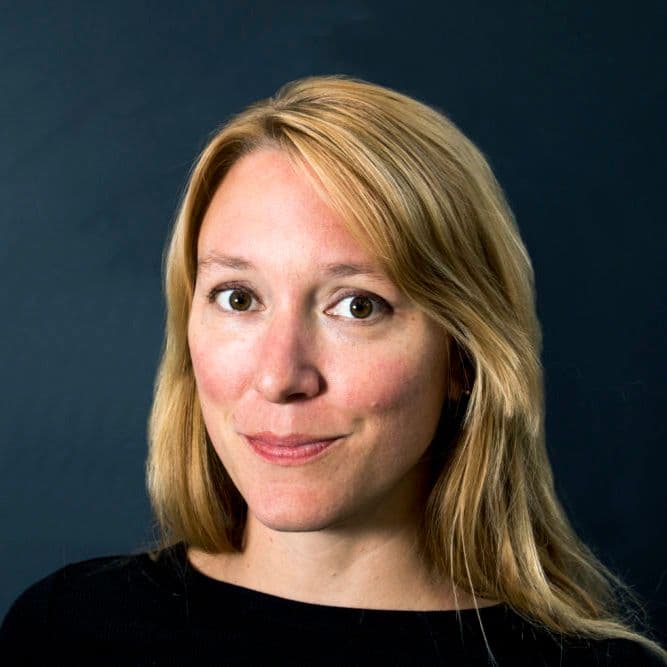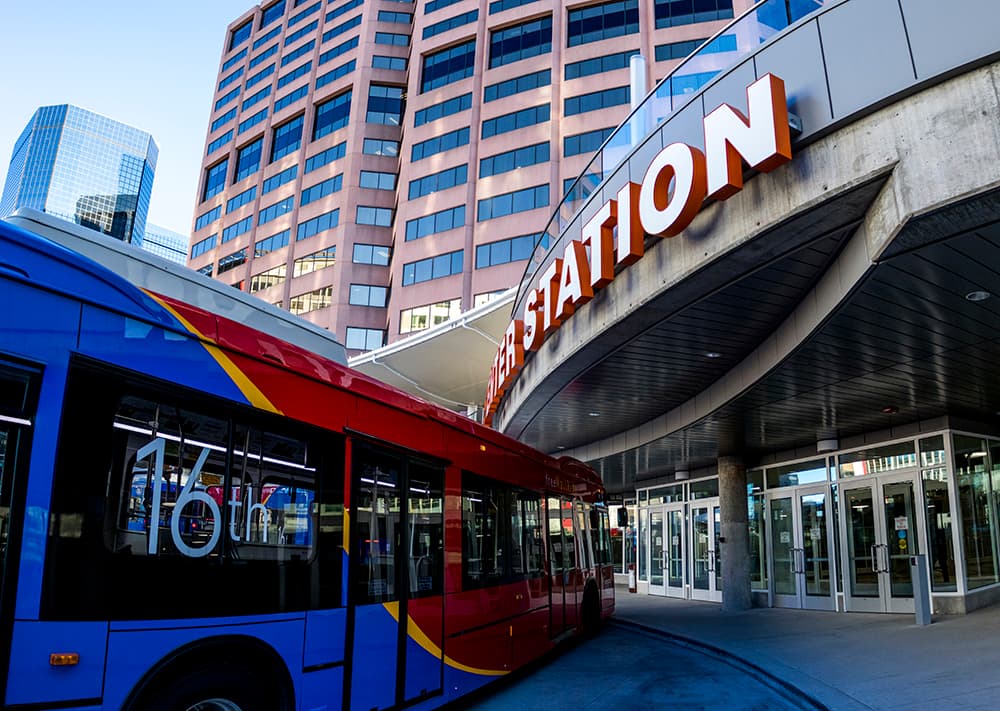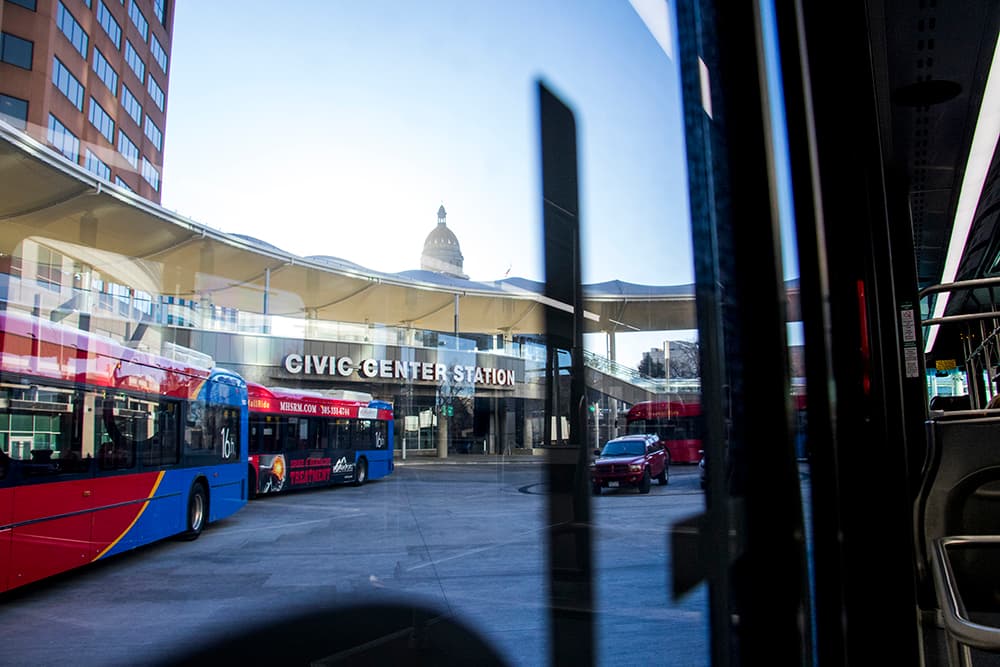
In a changing Denver, transportation has to change, too.
For past few years, that's meant RTD has built light-rail and commuter rail lines, reconsidered some of its major bus routes, brought ticketing to smart cards and mobile phones, rebuilt Civic Center Station, shut down Market Street Station and completely transformed Union Station.
Now it's due for a major overhaul of its pricing and pass programs.
RTD reviews its fares every three years, but for the first time in a long time, it's taking a deep dive and throwing a working group behind the effort.
"The main challenge is that everyone wants to give everyone a discount, but you can't give everyone a discount without missing your revenue target," said Michael Washington, RTD's transit equity manager.
The group, which includes 26 members representing almost as many regional interest groups (two members are with RTD), began meeting last March and will have held 11 meetings by Feb. 27. After that, it will present a consensus recommendation to RTD's board of directors for edits and approval.
In seven meetings so far, the group has narrowed its choices down to one option, known as Option E. According to a summary of the most recent meeting on Dec. 19, the choice was at least in part motivated by comments from riders, pass holders and members of the public, who said they wanted improvement on the existing EcoPass, an insurance model approach (more on in a minute) and for RTD to find a way to create a youth program.
RTD's decision will affect the EcoPass, Neighborhood EcoPass, FlexPass and CollegePass, as well as low-income and youth pass programs. It's a difficult balancing act — creating fair programs while managing the potential swings in ridership and revenue that come with changes.
RTD says they'd been receiving feedback that the pass programs were inequitable. The crux of it, Washington said, is that people would see the low cost of an EcoPass and want to know why they don't get access to such low costs — not realizing that that low cost comes from an insurance-model program through which employers buy a pass for everyone regardless of whether they’re using it.
But the main reason the programs went under review was more academic — an effort to make sure they're structured in a way that best serves everyone's needs.
"To do nothing would actually be worse," Washington said.
The earliest the public would experience any changes would be in early 2019, but now is the time to make yourself heard. You can attend a working group meeting to share your thoughts, and the next one will be held Tuesday, Jan. 16. (Details at the bottom of this post.)
So, let's take a look at what remains on the table.
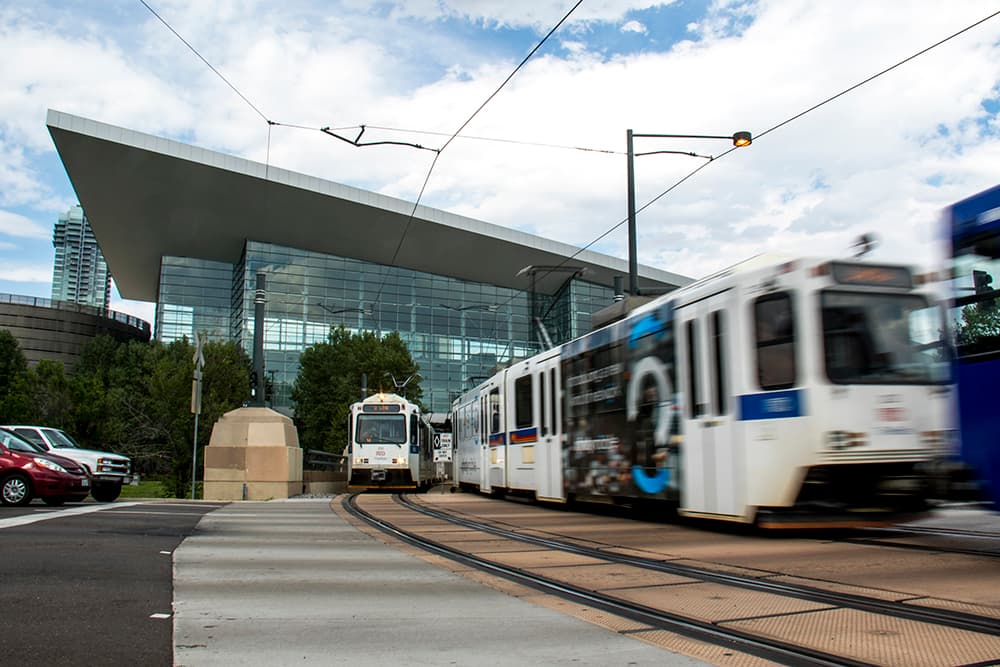
The CollegePass and FlexPass would remain essentially the same.
Under the CollegePass program, schools would be billed for student passes based on ridership. The passes get students free local, regional and airport bus and rail service. Right now, participating schools include:
- Anschutz Medical Campus
- Community College of Denver
- Metropolitan State College of Denver
- University of Colorado at Denver
- Colorado School of Mines
- Naropa University at Boulder
- Rocky Mountain College of Art and Design
- University of Colorado at Boulder
- University of Denver
- Escoffier Schools of Culinary Arts
- University of the Rockies
FlexPass — a monthly business option that lets employees of participating companies choose their service level, vary passes from month-to-month, and enter or leave the program at any time — will also remain the same. Modeling results presented at the working group's Dec. 19 meeting show the discount at 15 percent.
Pricing for EcoPasses could change.
The EcoPass, the employer-sponsored pass that gets employees unlimited rail and bus rides, is currently priced based on Service Level Areas (SLAs). Those include downtown and the Central Business District, areas around major transit centers, DIA and everywhere else.
At the working group's Nov. 14 meeting, Washington said, they discussed whether it would make more sense for participants of the EcoPass program to subsidize each other instead of dividing the metro area up into different levels. The result would be a significant decrease in cost for businesses in downtown and the Central Business District. All others would see an increase in cost.
The idea was back on the table Dec. 19.
"During the course of the last meeting, a question was also posed by one of the working group members -- the question was why do we need SLAs at all? What would happen if we didn’t have them?" Washington said.
They also tossed around the idea of not tying company size to EcoPass pricing. A consultant will model what the impact of eliminating both SLA- and size-based pricing.
The market for the EcoPass is one of RTD's largest, along with the market for a low-income pass, and changes here result in the biggest swings in ridership and revenue.
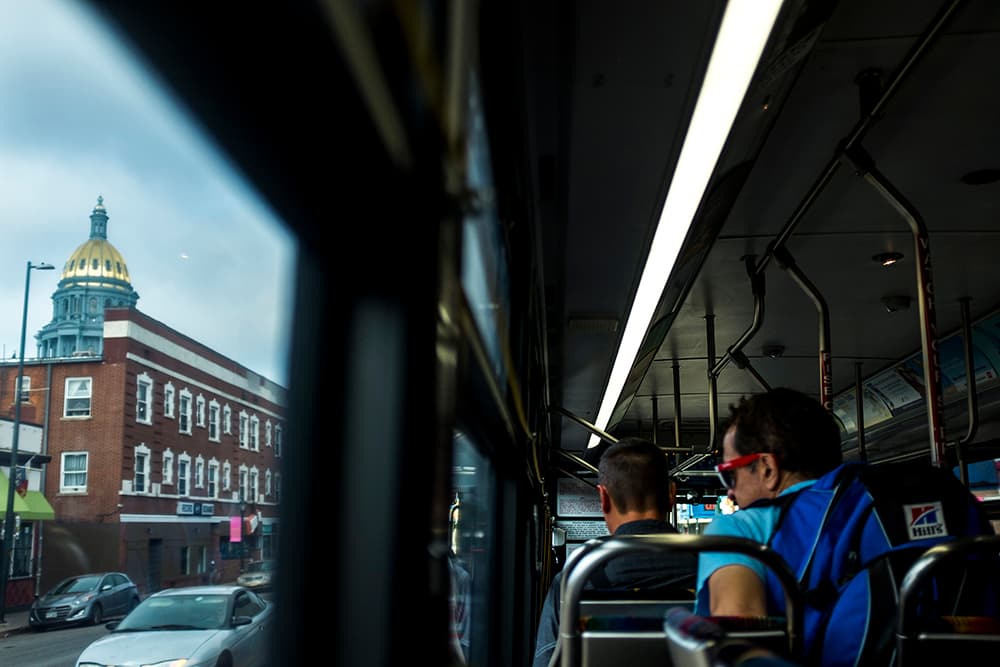
People who qualify for the low-income pass program would get a 50 percent discount.
That percentage is pretty much set right now, but the issue still on the table is who would qualify for a low-income pass program.
Again, this is one of RTD's biggest markets, and changes have a big impact on ridership and revenue. The working group modeled the 50 percent discount assuming the income threshold would be 200 percent of the federal poverty level (the highest possible option) and that only half of those eligible would actually take advantage of the program. That results in $7.9 million to $9.9 million in lost fare revenue for RTD in 2019.
"Other programs around the nation tend to be at the 200 percent poverty level — like Portland and Seattle, similar to Denver in an economic standpoint," Washington said. "But when you do that, you’re talking about a much large portion of our ridership. That makes the viability of a long-term program a little less likely."
Advocates would want the threshold set at 200 percent, but Washington said the working group is considering moving the it down to the more feasible 185 percent mark, "So it’s a smaller pool, but we have a better chance of helping people." Modeling puts that expected 2019 revenue loss at $7.3 million to $9.1 million, and the expected increase in ridership at 1.1 million to 1.3 million linked trips for the year.
You're right: That's a lot of lost revenue.
But the working group has a plan to help ease the financial blow.
Option E includes an EcoPass access fee of $5, meaning that for each pass distributed, the participant would pay $5. That money would help subsidize the low-income pass program.
The Regional Youth Pass Program discount could increase.
On the table are free passes for youth 12 and younger, and for the rest, a 50 percent discount on three-hour passes and a 70 percent discount on day, monthly and annual passes.
"Overall modeling results for youth, even under Option E with a 70 percent discount, revenue is flat and ridership goes up," Washington said. "Youth make up such a small portion of our ridership that it’s a blip."
What does this mean for fares and products for the general public — the people not using pass programs?
- Riders would purchase three-hour passes instead of one-way tickets.
- The stored value discount would be 25 cents and the load bonus would be 15 cents, both the same as they are now.
- The 10-ride option would go away. (Washington said this is because the MyRide Smart Card program has become easier to access and offers the same discount.)
- The cost of a day pass remains $5.20 — the cost of one round-trip.
- The cost of a monthly pass remains $99 — the cost of 38 trips.
- The annual pass, of ValuPass, remains $1,089 —the cost of 11 monthly passes.
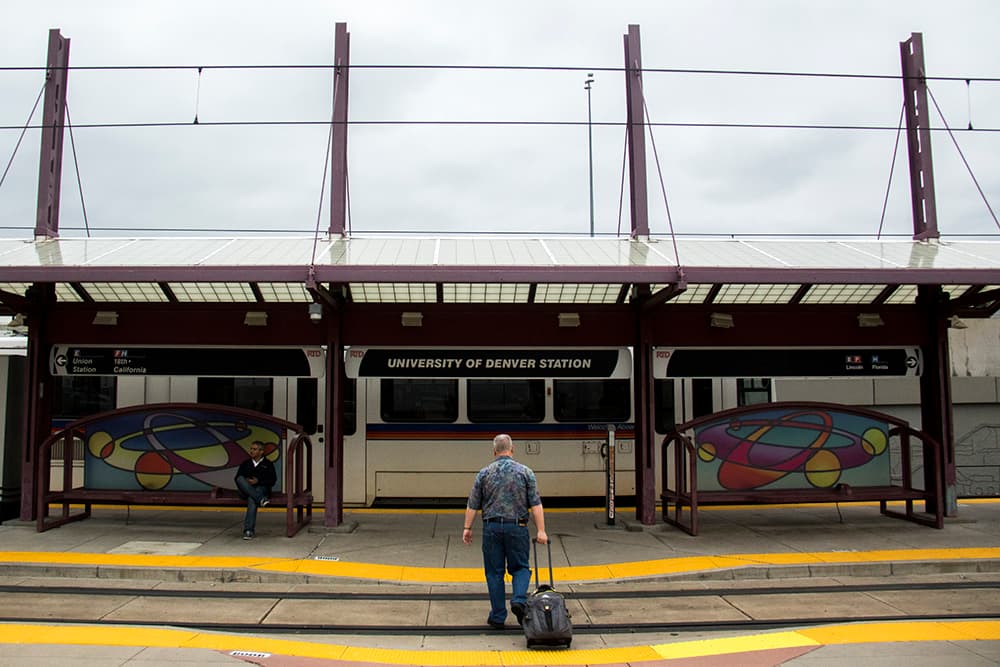
Here's how you can tell RTD what you think.
The Pass Program Working Group has three meetings remaining to finalize a plan that it will present to the RTD Board of Directors.
You can offer input at these meetings, which will be held:
- Jan. 16, 1-4 p.m., Webb Building, 201 West Colfax Ave., 4th Floor
- Feb. 6, 1-4 p.m., One Civic Center Plaza, 1560 Broadway, 19th Floor Conference Room
- Feb. 27, time and place TBD
Members of the working group are:
- Carol Buchanan, Denver Regional Mobility and Access Council
- David Cook, University of Colorado
- Mizraim Cordero, Metro Chamber of Commerce
- Crissy Fanganello, City and County of Denver: Public Works
- Felicia Griffin, FRESC
- Mark Imhoff, Colorado Department of Transportation
- Susan Jordan, Children’s Hospital
- Steve Klaussing, Denver South Economic Development Partnership
- Ken Lloyd, Regional Air Quality Council
- Sheila Lynch, Tri-County Health
- Angie Malpiede, Northeast Transportation Connections
- Bill Marino, West Colfax
- Aylene McCallum, Downtown Denver Partnership
- Scott McCarey, Boulder County
- Heather McKillop, RTD (Chief Financial Officer)
- Joel Noble, Inter-Neighborhood Cooperation
- Kathleen Osher, Transit Alliance
- Dennis Polhill, Independence Institute
- Nicole Portee, Denver Public Schools
- Doug Rex, Denver Regional Council of Governments
- Karen Stuart, North Area Transportation Alliance
- John Tayer, Boulder Economic Development
- Michael Washington, RTD (Transit Equity Manager)
- Dace West, Mile High Connects
- Dionne Williams, Denver Children’s Office
- Mary Young, Boulder
